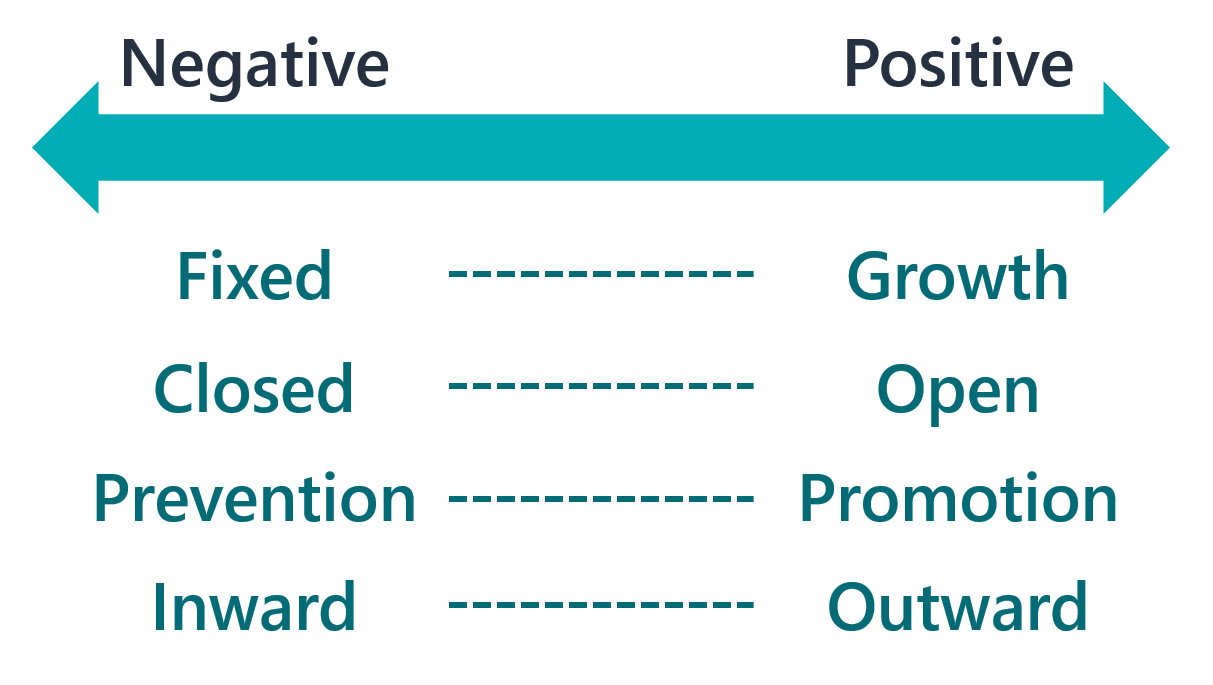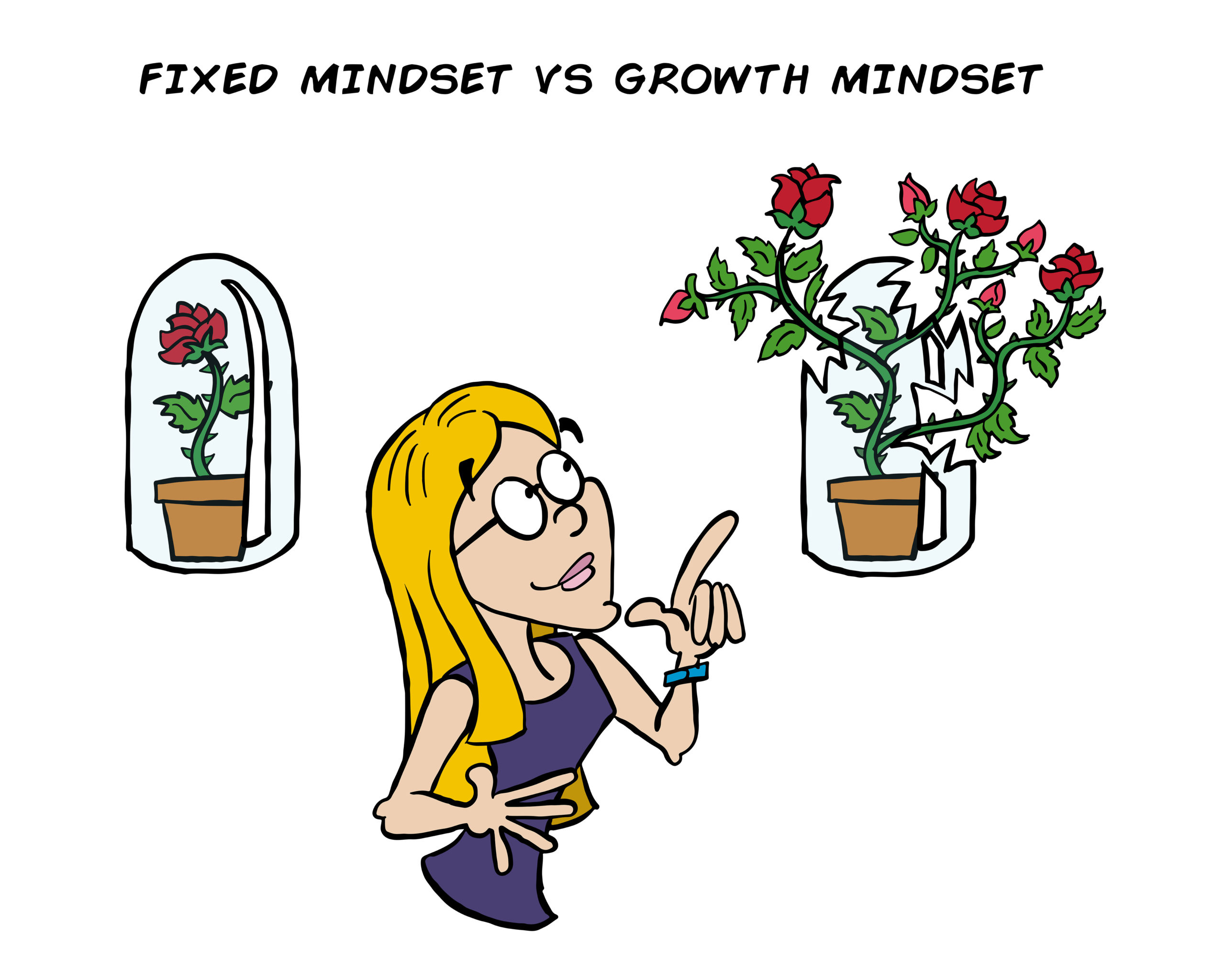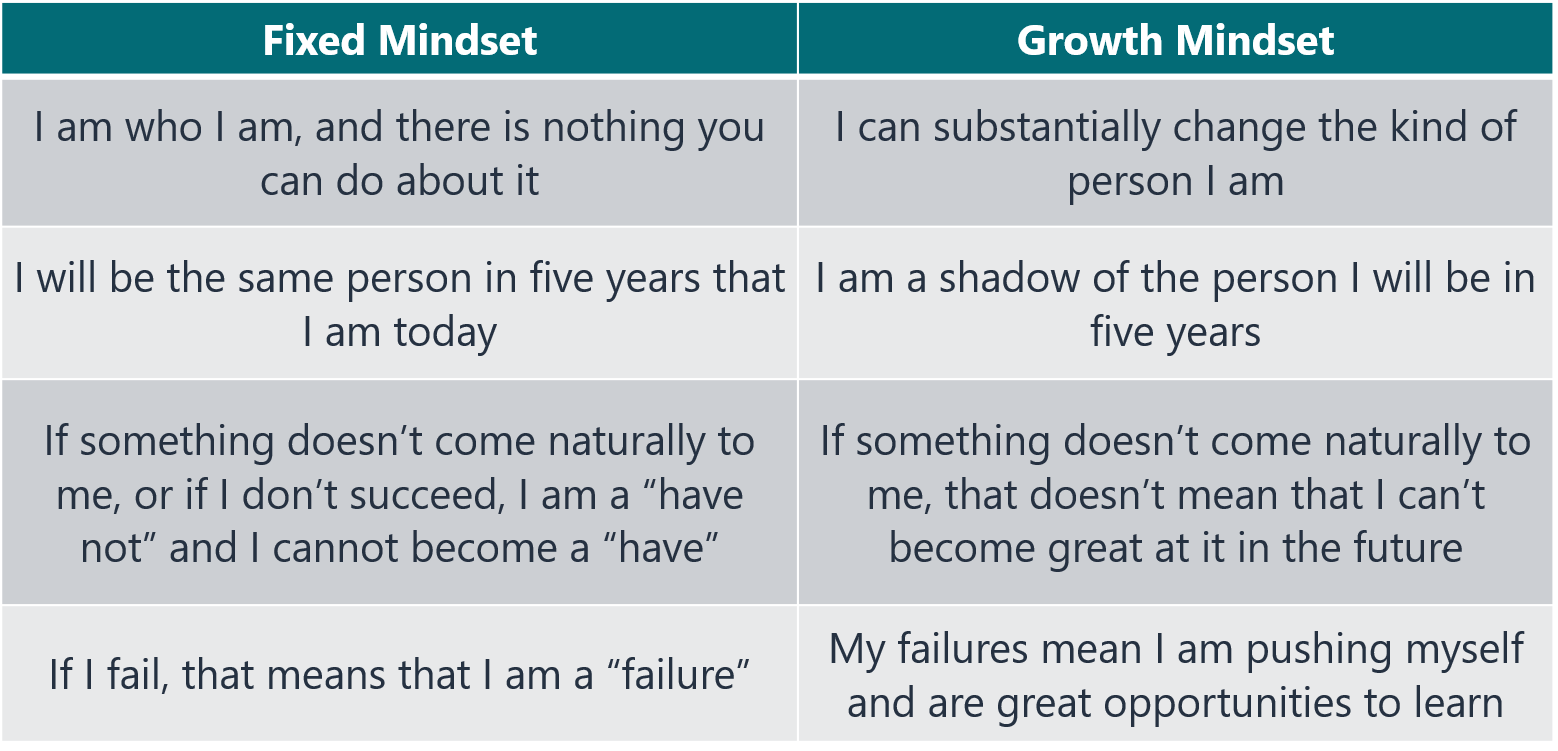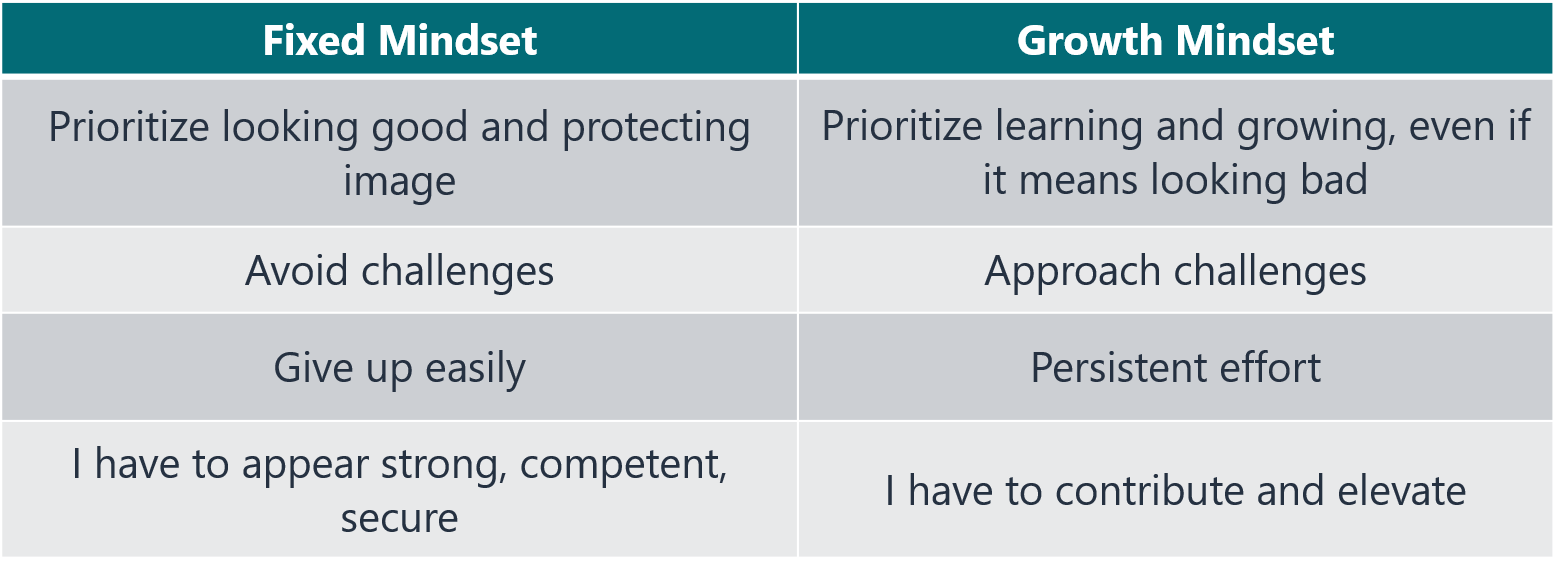Mindsets are specific, recognizable, and repeatable orientations to our life’s experiences.
They are specific, recognizable, and repeatable because they are strong neural connections in our brain that our brain frequently relies upon to make sense of and respond to our world.
For example, when you are faced with any of the following situations, your mindsets will guide your interpretation and response to each situation in specific, recognizable, and repeatable ways:
- A challenge or difficulty has presented itself
- You are given constructive criticism
- You have to decide between taking a risk and playing it safe
- You have to interact with another individual
Here are some important implications we have learned associated with mindsets:
- Some mindsets lead to more healthy interpretations and responses than others
- Most people are not conscious of their mindsets
- Regardless of how healthy our mindsets are, our interpretations and responses come so naturally to us that they “feel right,” even if they are negative/less healthy
- Having more negative mindsets is a signal that the altitude of mental maturity is lower than what it could be
- Just by becoming conscious of our mindsets, we level up in our mental maturity
- We can shift our mindsets, and if we do so in a positive direction, we will come to interpret and respond to our world in more productive ways
Four Sets of Mindsets
There are four sets of mindsets that have been identified and have received 30+ years of research backing. They are:

Each set represents an empirically-backed continuum, and the quality of our mindsets will fall somewhere along each continuum.
In this blog post, I will show how fixed and growth mindsets cause people to think (interpret) and operate (respond) in predictably different ways.

If you want to read about the other mindsets, click below:
How Fixed and Growth Mindsets Affect Our Thinking

After assessing the mindsets of leaders and employees across over 100 organizations, I have found that this is the set of mindsets that most leaders and employees struggle with the most. The majority of leaders and employees generally have a fixed mindset, which makes them inclined to think and operate more like the columns on the left than the columns on the right.
How Fixed and Growth Mindsets Affect Our Operating

Where Do You Stand?
If you want to identify the degree to which you have a fixed or growth mindset, take my FREE personal mindset assessment (the most comprehensive and research-backed mindset assessment available).
Learn more about these mindsets and how to develop more of a growth mindset in my Wall Street Journal and USA Today best-selling book: Success Mindsets: Your Keys to Unlocking Greater Success in Your Life, Work, & Leadership.












One Response
I appreciate the review. Periodic evaluation is essential to growth.